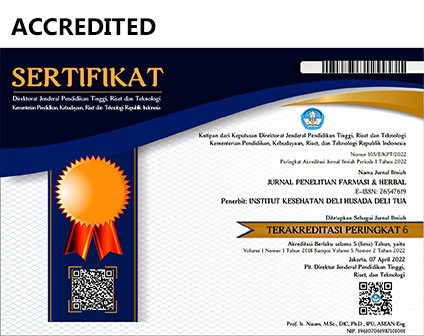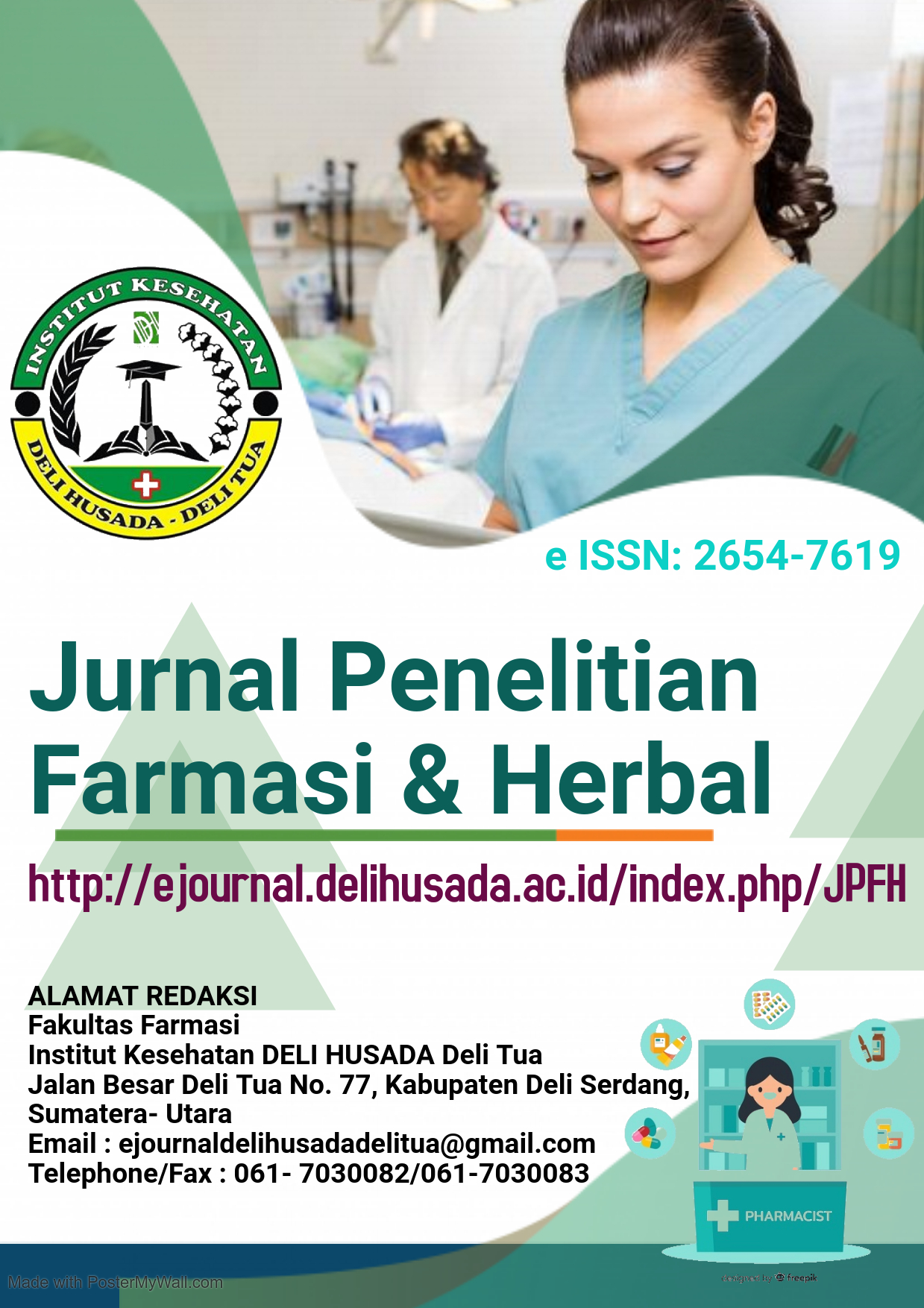Hiperlipidemia Uji Efektivitas Antihiperlipidemia Ekstrak Etanol Daun Kersen (Muntingia calabura L.) Pada Tikus Putih Jantan Yang Di Induksi Fruktosa
Abstract
Hyperlipidemia is a condition of high lipid concentration which is characterized by increased concentrations of triglycerides, LDL (Low Density Lipoprotein), blood cholesterol that exceeds normal limits which is one of the risk factors for cardiovascular disease. Kersen leaf has contains secondary metabolites of flavonoids and saponins which are thought to reduce cholesterol levels in the blood. The aim of this study was to determine the antihyperlipidemic effectiveness of ethanol extract of kersen leaf (EEDK/EEKL) in fructose-induced male white rats. Testing the effectiveness of antihyperlipidemia was carried out using an experimental method using fructose-induced male rats as test animals. The test animals were divided into 5 groups, namely negative control (CMC Na 1%), positive control of simvastatin (0.9 mg/kgBB), EEDK dose of 350 mg/kgBB, EEDK dose of 400 mg/kgBB, EEDK dose of 500mg/kgBB. Cholesterol levels were measured using the point of care testing (POCT) method. The data obtained were analyzed statistically using the one way ANOVA test. The results of the analysis showed that there were significant differences between the negative control, positive control, EEDK 350 mg/kg, EEDK 400 mg/kg and EEDK 500 mg/kg (P<0.05). The decrease in cholesterol levels increased in line with the increase in the dose of cherry leaf ethanol extract. The most effective EEDK as antihyperlipidemia is the EEDK at a dose of 500 mg/kg BW. There was no significant difference between the positive control and the 500 mg/kg BW EEDK dose (P>0.05). Based on the results of the statistical analysis that has been carried out, it can be concluded that the ethanol extract of cherry leaves has an antihyperlipidemic effect on rats.







